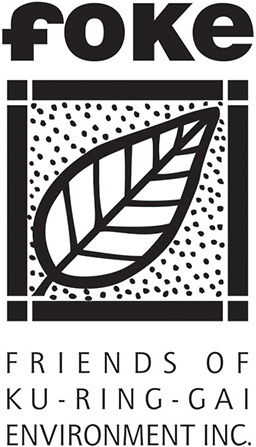
FOKE’s Response to TOD Inquiry Recommendations
| TOD INQUIRY REPORT RECOMMENDATION | DRAFT FOKE’S Response as of 24.10.24 |
| The Portfolio 7 Committee Development of the Transport Oriented Development Program Committee Report called on the NSW Government to take a holistic, long-term view of options to address the housing crisis, particularly through the delivery of public, social and affordable housing. It also encourages the Government to take a collaborative approach with key stakeholders, and ensure that these particular reforms deliver ‘density done well’, that enhances the amenity and quality of life for residents. | The TOD is a ‘One Size Fails All’ blunt planning instrument that have controls that means ‘density CANNOT BE DONE WELL’. The TODs are developer driven. They are not community driven with the goal of better planning. The TODS are undemocratic. Stakeholders ie the residents living in the area had NO SAY about the imposition of the TODs. They do nothing for climate adaptation. |
| Recommendation 1 That the NSW government continue to work in collaboration with local councils and key stakeholders on building community understanding of housing reforms, including the TOD program. | In FOKE’s initial written submission to the TOD Inquiry it requested that Ku-ring-gai be withdrawn from the TOD as it would have a devastating impact on Ku-ring-gai’s outstanding built and natural heritage. Nor was any evidence supplied to demonstrate Roseville, Lindfield, Killara and Gordon were suitable TOD locations and had the necessary infrastructure to support the densification. |
| Recommendation 2 That the NSW Government continue to work with stakeholders, including local councils and development industry representatives, to clarify how the TOD SEPP will operate alongside existing planning controls, and update the existing guidelines should there be any further uncertainty. | FOKE supports Ku-ring-gai Council’s legal action against the NSW Government’s TODs. As the TOD planning controls currently stand, they will wipe out Ku-ring-gai’s gazetted Heritage Conservation Areas and seriously diminish the heritage curtilage, streetscape and amenity of gazetted Heritage items. |
| Recommendation 3 That the NSW Government consider evidence on drivers of housing affordability and ensure that detailed planning for the current and any future TOD precincts is tailored for specific localities and considers how the program can best promote housing supply that meets community needs. | The community has no confidence that the four Ku-ring-gai TODs will provide housing affordability. Existing interwar affordable units near the stations will be demolished and not replaced by equivalent affordable housing. The one size all TOD is a blunt instrument that by its nature cannot tailor detailed planning for specific localities. |
| Recommendation 4 That the NSW Government develop a package of measures to address current constraints impacting on residential construction in New South Wales. | Where is the sustainability in protecting in situ residential housing? Where will the demolition materials go to? It is time to think about sustainable cities not ‘growth cities’. NSW needs a sustainable economy not a growth economy. Other factors constraining residential construction are: interest rates at a 12 year high; a 40% rise in construction costs since the start of the Covid pandemic; high rates of construction industry insolvency; and competition for materials and labour with big infrastructure projects. |
| Recommendation 5 That the NSW Government continue the work on a framework for affordable housing under the TOD program. | FOKE does not support increasing heights to support affordable housing under the TOD program. FOKE believes mechanisms are needed to stop the demolition of existing affordable housing stock. |
| Recommendation 6 That the NSW Government continue to address the broad range of issues contributing to the housing crisis, noting in particular: – continued investment in public housing – continued involvement of Government in delivery of different housing typologies – maintaining design standards and building quality for apartments – continuing progressing legislation to reform the rental market and make renting fairer for all renters – reviewing the operation of strata title to minimise – legal complexity and financial risk for apartment owners, and provide for possibility of future urban renewal. | FOKE remains concerned that it does not mention the contributing issue relating to the housing crisis is from excessive and unsustainably high immigration levels. Population growth is the main driver for housing demand. Respected economist, Alan Kohler, has outlined in forensic detail how, over two decades, population growth fuelled by high immigration has led to the current housing situation. Nor foreign investors in housing. Nor developer land banking. |
| Recommendation 7 That the NSW Government consider focusing infrastructure funding through the Urban Development Program to areas of growth, including TOD locations, to ensure that community infrastructure and amenity needs are delivered alongside housing. | FOKE has written the NSW Premier asking for the amount of money needed to provide infrastructure and amenity needs such as parks, playgrounds, sportsfields, schools, hospitals. The Premier has never replied to FOKE’s letter. |
| Recommendation 8 That the NSW Government maintain the existing robust design and building standards throughout new housing reforms to ensure long term liveability of new developments. | FOKE supports this including the need for tree protection and deep soil landscaping. |
| Recommendation 9 That the NSW Government investigate measures to encourage the delivery of family-friendly apartments as part of its housing reforms. | FOKE supports this. However, they must be affordable. Open space provisions need to be provided as well, and tree canopy retained. |
| Recommendation 10 That the NSW Government: – continue to maintain commitment to 40 per cent urban tree canopy cover across Greater Sydney by 2036 – release further guidance for local councils and industry on managing and minimising mature tree and canopy loss during development, including appropriate compensatory measures for replacement. | FOKE’s urban tree canopy must be maintained and restored. The TODs planning controls must be changed to ensure deep soil landscaping provisions for its critically endangered Blue Gum High Forest and Sydney Ironbark Turpentine Forest |
